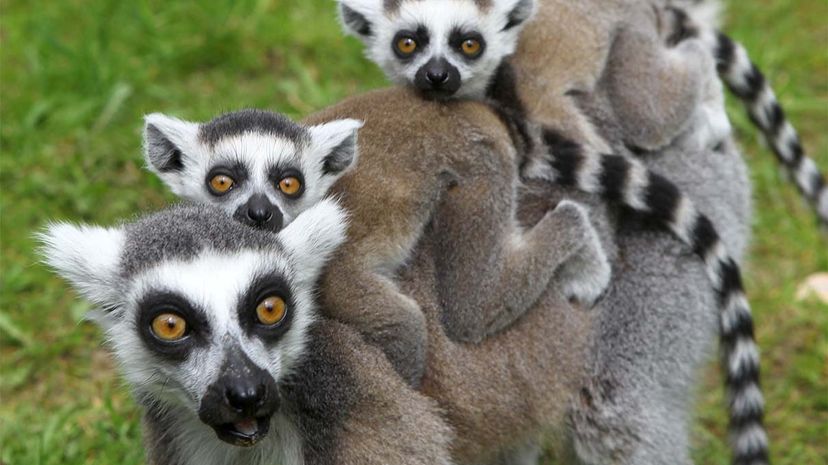
In 1936, self-help lecturer Dale Carnegie wrote a book called "How to Win Friends and Influence People." It became one of the best-selling books ever because all the stuff he suggested really works on humans: be friendly and make other people feel interesting and special. Honestly, that's pretty much it.
But it turns out the ring-tailed lemur (Lemur catta), a distant cousin of ours, finds social success in different ways. According to a study published in the April 5, 2018, issue of the journal Current Biology, these little fox-faced primates shower social approbation on those with smarts rather than their most cordial acquaintances.
Advertisement
"We found that lemurs who were frequently observed by others while solving the task to retrieve the food received more affiliative behaviors than they did before they learned," said co-author Ipek Kulahci, formerly of Princeton University and now a postdoctoral researcher at University College Cork in Ireland, in a press release. "As a result, they became more socially central than they were before the experiment."
Lemur life involves a whole lot of finding food and avoiding predators, so it naturally follows that they might prefer to have buddies capable of showing them the best ways of filling their bellies or avoiding hawks and civets. And although previous research indicates that lemurs acquire new skills more quickly after they've observed another member of their troop perform them, this study finds that individual lemurs enjoyed more popularity when they could prove their problem-solving prowess to others.
The researchers tested this idea by setting up an experiment in which the animals had to figure out a way to retrieve a grape from a Plexiglass box. They found the most popular lemurs in the troop were most likely to retrieve the grape out of a little drawer, and those who observed the successful animals and copied them got more love from the group as a result.
"I was quite impressed that the frequently observed lemurs received more affiliative behaviors, such as grooming, without adjusting their own social behavior," said Kulahci. "In most primate species, grooming tends to be mutual; it relies on reciprocity between the groomer and the individual being groomed. ... So it is a pretty striking pattern that the frequently observed lemurs received lots of grooming without providing more grooming to others."
Advertisement

